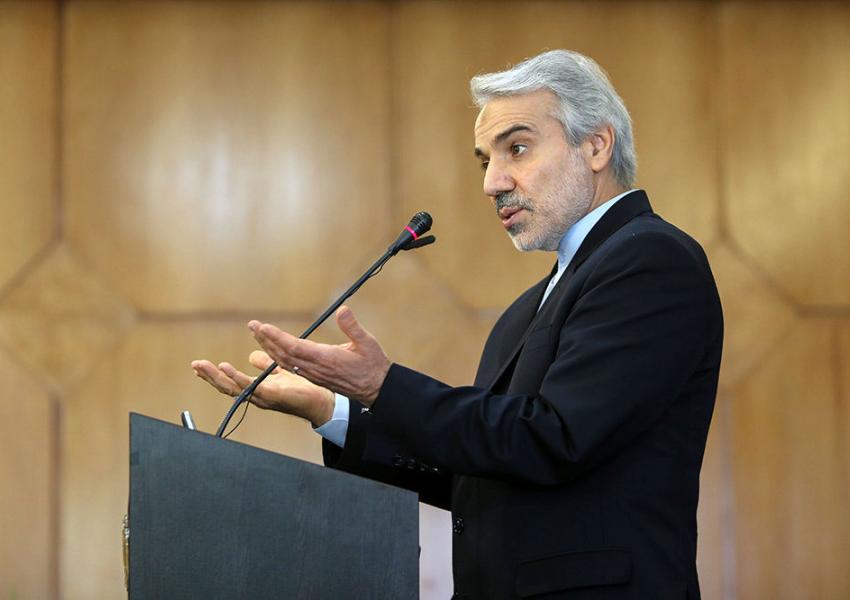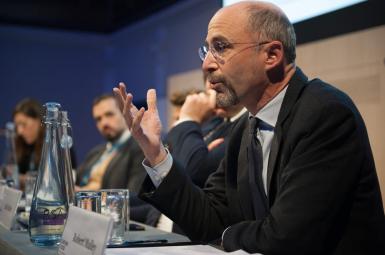
Rouhani Aide Says Iran ‘On Lookout’ For Ways To Lift Sanctions With ‘Honor’
Divisions between the centrist government of Hassan Rouhani and the principlist faction dominating Iran’s parliament have sharpened with a letter from a leading Rouhani ally telling the parliamentary speaker that Iranians want United States sanctions lifted rather than meager handouts from their government.
Mohammad Bagher Nobakht, who heads the Planning and Budget Organization, wrote on Tuesday to Mohammad Bagher Ghalibaf (Qalibaf) reminding him that US sanctions had driven down Iran’s foreign currency revenues to a few billion dollars annually from over $100 billion less than a decade ago. Nobakht was responding to continuing parliamentary pressure for Rouhani’s fiscally pressed government to extend subsidies of essential goods.
Parliament approved a bill October 28 to hand out coupons to around 60 million Iranians, a clear majority of the 83 million population, to obtain food and other necessities, at a cost of over $1 billion. After the government argued that it lacked sufficient disposable funds, the Guardian Council, a constitutional watchdog, rejected the legislation on the grounds that expenditure required sources of revenue. Hardline parliamentarians, keen to show their concern over rising poverty, are scrambling to identify funding and are proposing ideas such as higher import duties.
On Monday, Rouhani’s first vice-president Eshaq Jahangiri said Ghalibaf had “no clue about economic matters.” Coupons financed by higher import duties, Jahangiri insisted, would just fuel inflation and be self-defeating.
But the principlists have for months been beating a drum that US sanctions, although far more draconian than ever before, do not explain Iran’s economic hardship, which is due rather to the ‘mismanagement’ of the Rouhani administration.
In his letter to Ghalibaf, Nobakht argued that despite a sharp fall in government revenue, the Rouhani administration had managed to pay state employees and pensioners and to continue developmental projects. “The people today want sanctions to be lifted instead of receiving subsidies and small donations,” Nobakht insisted, and recalled there had been rising growth and reduced unemployment after international sanctions were eased following Iran’s 2015 nuclear agreement with world powers.
Reformists in the Islamic Republic have been chastised by principlists for showing satisfaction with Joe Biden’s projected victory in US presidential election. Ghalibaf and his peers have claimed it makes no difference who is US president and that Biden is as bad as Donald Trump when it comes to Iran. They have stressed ‘self-reliance’ and the need to unleash Iran’s potential. But Iran’s national currency has lost its value nine-fold and oil exports have collapsed since the beginning of 2018 when the US imposed tough sanctions.
Nobakht was careful in his letter not to appear to advocate negotiations with the US from a weak position, pointing out that Rouhani refused to meet with Trump at the United Nations General Assembly in September 2019. Nobakht also expressed deference to Supreme Leader Ali Khamenei, insisting that the administration always acted within the path set forth by the “leader of the revolution.” The government was, Nobakht wrote, on the lookout “for opportunities” to solve the issue of sanctions “with honor.”








